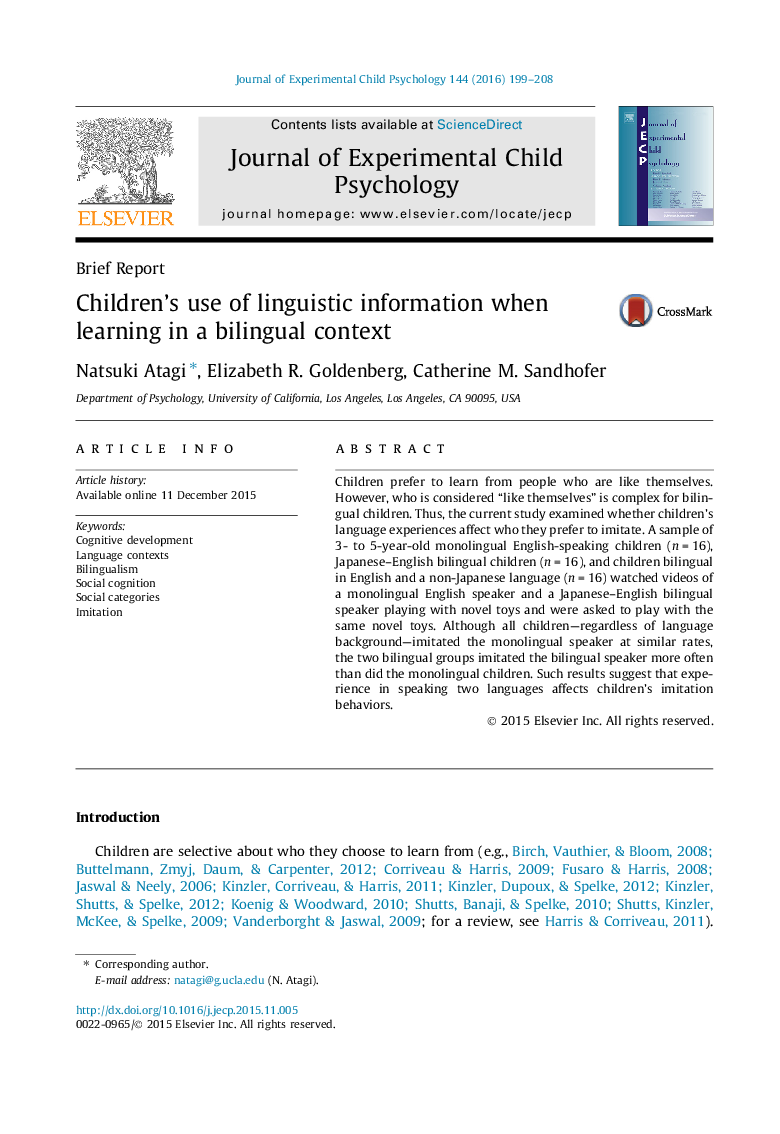| Article ID | Journal | Published Year | Pages | File Type |
|---|---|---|---|---|
| 917874 | Journal of Experimental Child Psychology | 2016 | 10 Pages |
Abstract
Children prefer to learn from people who are like themselves. However, who is considered “like themselves” is complex for bilingual children. Thus, the current study examined whether children's language experiences affect who they prefer to imitate. A sample of 3- to 5-year-old monolingual English-speaking children (n = 16), Japanese-English bilingual children (n = 16), and children bilingual in English and a non-Japanese language (n = 16) watched videos of a monolingual English speaker and a Japanese-English bilingual speaker playing with novel toys and were asked to play with the same novel toys. Although all children-regardless of language background-imitated the monolingual speaker at similar rates, the two bilingual groups imitated the bilingual speaker more often than did the monolingual children. Such results suggest that experience in speaking two languages affects children's imitation behaviors.
Related Topics
Social Sciences and Humanities
Psychology
Developmental and Educational Psychology
Authors
Natsuki Atagi, Elizabeth R. Goldenberg, Catherine M. Sandhofer,
